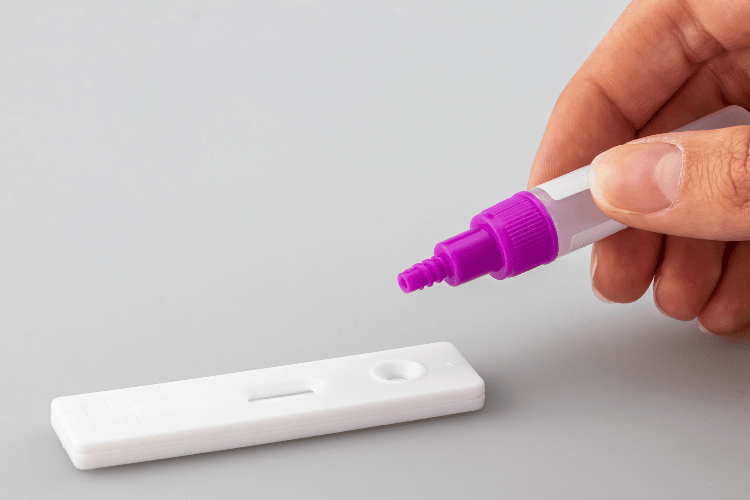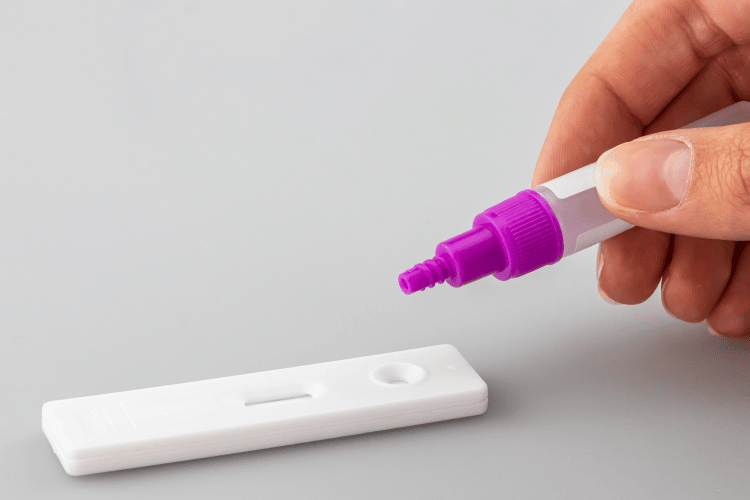
Disinfecting Wipes: Are They Enough to Kill the Novel Coronavirus?
In the battle against coronavirus, families, and business owners have been buying an astounding number of germ-killing products, especially disinfecting wipes. The problem is, people can’t just buy a pack of disinfecting wipes, use them to wipe down every surface in the home, and just assume that means they are all 100% coronavirus-free. Not all disinfecting wipes will kill the novel coronavirus, and even those that will kill it must be used properly in order for them to work.
The good news is, there are disinfectants that are EPA-approved and easy to use that can kill the novel coronavirus. Read on to find out everything there is to know about disinfecting houses and businesses to help reduce the spread of COVID-19.
Table of Contents
Do Disinfecting Wipes Work Against Covid?
Disinfecting wipes are disposable cleaning products that come with pathogen-killing solutions on them. They’re great for cleaning hard, frequently touched surfaces like countertops, doorknobs, and remote controls, though they aren’t effective for upholstered materials or fabrics. Many types of disinfecting wipes can kill the coronavirus on contact, but it’s not safe to just assume that any product will work.
Those who want to find the most disinfectant for COVID need to check the labels before buying new wipes and other disinfecting products. The label should list what types of germs the wipes have been proven to kill. There’s no need to read through every ingredient because there are numerous disinfectants that can kill the coronavirus. Just pay enough attention to note whether the product was designed for that use.
Disinfecting vs. Sanitizing Wipes
Disinfectants are designed for use on products, not people. They often contain chemicals that could cause trouble if applied directly to the skin. Sanitizing wipes are usually intended for cleaning hands. They’re alcohol-based, which makes them safe for direct contact. It’s relevant to note here that not all sanitizing wipes will kill the coronavirus, either. Look for alcohol-based products that are labeled appropriately. Antibacterial wipes will do nothing to control the spread of viruses.
While some sanitizing wipes can be used to clean hard surfaces as well as hands, it’s best to stick to actual disinfectants for home cleaning. They feature more powerful chemical or botanical formulations that will keep surfaces cleaner for longer.
How to Use Disinfecting Wipes
Disinfecting wipes kill germs through the targeted application of chemicals. Since they contain chemicals, it’s important to use them properly not just to ensure that all those pathogens are gone but also to protect the family’s health. Here’s what to do.
Step One: Check for EPA Approval
Before buying new disinfecting wipes, check the packaging. Somewhere in the fine print, there should be an EPA registration number. The product packaging may also note that it is approved by the EPA for use against the coronavirus. If there’s no indication that the product is EPA-approved, put it back on the shelf and find one that is.
Step Two: Read the Directions
Every disinfectant works a little differently, so it’s important to read the directions before using a new one. There should be clearly labeled warnings on the packaging if it contains harsh chemicals and information about what to do after accidental ingestion or skin contact. In most cases, the only precaution that must be taken is putting on a pair of gloves to protect the skin, but take the time to check.
Step Three: Clean First
Disinfecting wipes work better on clean surfaces. Use a rag or a paper towel and some soapy water to remove visible dirt or gunk before using the wipes.
Step Four: Wet the Entire Surface
Use the disinfecting wipes to wet the entire surface. Make sure to follow the contact time guidelines indicated on the product’s packaging. Every disinfectant requires some time to work, but they’re all different. Make sure to leave the disinfectant on the surface being treated until the contact time is up.
Step Five: Clean Up
Throw the disposable gloves and any used wipes in the trash. They’re not designed for reuse. When putting away the rest of the wipes, make sure they’re kept someplace safe that can’t be reached by children or household pets.
When to Rinse the Surfaces
Once the contact time has ended, it’s fine to rinse the disinfected surface. If the surface is in the kitchen where it might come into contact with food, it should always be rinsed. Even botanical disinfectants are quite powerful and they’re not intended for human consumption.
Are Disinfecting Wipes for Coronavirus Safe?
As long as home or office cleaners follow the steps above, there shouldn’t be any serious safety risks. However, it’s important to read the labels and warnings, find EPA-approved products, and stick to using one disinfectant product at a time. Mixing different cleaning products can create toxic fumes.
It’s a good idea to avoid disinfecting wipes that contain bleach as an active ingredient. Bleach can destroy surfaces, even when it’s diluted because it is very harsh. It can also produce toxic fumes when combined with other cleaning products, including natural cleaners.
Are Disinfecting Wipes Necessary?
Some people assume that they can just clean surfaces the old-fashioned way with a rag and some soapy water. While this approach is just fine for cleaning, it won’t disinfect surfaces. The best way to kill the coronavirus, and other germs, for that matter, is to use cleaning products that are registered as disinfectants.
The Bottom Line
If consumers choose their products wisely and use them as described on the labels, disinfecting wipes can kill the coronavirus. It’s important to follow all safety instructions. If possible, try to buy botanically derived disinfectants and cleaners. The best of them will clean, disinfect, and sanitize surfaces without exposing residents to potentially harmful chemicals.
Keeping surfaces pathogen-free isn’t enough to keep the coronavirus in check. People also need to wear masks, practice social distancing, and isolate themselves if they feel sick. That said, disinfecting wipes can play an essential role in preventing the spread of COVID-19.






